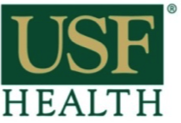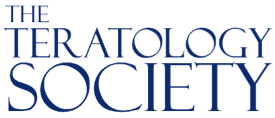Program
Continuing Medical Education
Jointly Provided by


2019 Society for Birth Defects Research and Prevention CME Program
Sheraton San Diego Hotel and Marina
1380 Harbor Island Drive
San Diego, California 92101
Monday, June 24 – Tuesday, June 25
As part of the Society for Birth Defects Research and Prevention 59th Annual Meeting taking place June 22-26, 2019
Program Description:
Birth defects and developmentally-mediated disorders constitute a major public health concern in the world today. Human development can be affected not only by drugs and chemicals but also by diet, genetics, maternal health, and socioeconomic factors. Understanding and protecting against hazards to developing embryos, fetuses, and children requires advanced scientific knowledge from diverse and novel fields such as cell and molecular biology, development biology and toxicology, computational modeling, genetics, and epidemiology. The science is put into practice in the areas of prenatal medicine, pediatrics, obstetrics, neonatology, medical genetics, counseling, product safety, risk assessment, and government regulations. The Society for Birth Defects Research and Prevention Annual Meeting provides the opportunity to promote our shared vision and scientific identity as researchers focused on the causes, manifestations, interventions, and preventions of birth defects and disorders of developmental origin.
Target Audience:
Family Medicine, Medical Genetics and Genomics, Neonatologists, Obstetrics and Gynecology, Ophthalmology, Pediatrics, Urology
Learning Objectives:
At the conclusion of the 2019 Society for Birth Defects Research and Prevention CME Program, participants will be able to:
- Identify at least three health services research methods that can be applied to the study of children and/or adults born with birth defects.
- Describe challenges in assessing the prevalence of congenital heart defects in adult populations.
- Discuss the role and contribution of patient registries for health services research concerning specific birth defects.
- Summarize how research focusing on costs, health care use, and outcomes for individuals with birth defects can enhance our understanding of the impact of birth defects on individuals, families, and society.
- Describe disorders of sex development (DSDs) in male and female newborns and adolescents.
- Characterize evolving options for medical and surgical management decisions that are available to patients with DSDs.
- Discuss the psychological, behavioral, and social challenges related to DSDs.
- Recognize the collaborative role that patients, caregivers, and health care professionals have in developing and implementing a care plan.
- Identify the potential role of xenobiotics, such as endocrine disrupting chemicals, in DSDs and the use of research in animal models to explore the origins of phenotypic differences.
- Recognize different criteria for assessing causality (including the Shepard’s Criteria; Brent’s Criteria; Bradford Hill Criteria).
- Know historical examples of how teratogens were identified (including Fetal Alcohol Spectrum Disorder among others).
- Explain how clinical evidence can assist in the process of teratogen identification.
- Know what a Directed Acyclic Graph is and how they are used to better understand causal relations between a potential teratogen and the birth defects it may cause.
- Describe contributors to the increase in maternal morbidity and mortality in the United States.
- Identify and assess maternal morbidity and mortality risks within their practice and describe how those risks can be reduced.
- Discuss whether Quality Improvement Initiatives could be developed and implemented at the state level.
- Discuss contributors to hypertensive and cardiovascular disorders in pregnancy and the potential impact of hypertensive disorders on maternal morbidity and mortality.
Course Competencies:
- Medical / Pharmacotherapy Knowledge
- Employ Evidence Based Practice
- Utilize Informatics
- Professionalism
- Systems-based Practice .
Activity Director:
Sonja A. Rasmussen, MD, MS
Professor, Department of Pediatrics
University of Florida
CME Registration Fees:
Registration for the 2019 Society for Birth Defects Research and Prevention CME Program is $75 and is open to all registrants of the Society for Birth Defects Research and Prevention 2019 Annual Meeting.
CME Registration Form
CME Registration Fees include participation in the CME Program and CME Certificate upon completion of requirements.
Cancellations must be requested in writing via fax to 703.438.3113 or e-mail to bdrp@birthdefectsresearch.org, and received by May 15, 2019 in order to receive a refund. Please note that while there is no cancellation fee for the CME Program registration fee, there is a $25 cancellation fee charged for Annual Meeting registration cancellation after May 15, 2019. There are no refunds for no-shows or for cancellations received after May 15, 2019.
Completion Requirements:
- Sign-in at registration table
- Attend live sessions
- Complete the online activity evaluation
- Attest online to your participation
Accreditation:

Physicians
This activity has been planned and implemented in accordance with the accreditation requirements and policies of the Accreditation Council for Continuing Medical Education (ACCME) through a joint providership of USF Health and The Society for Birth Defects Research and Prevention. USF Health is accredited by the ACCME to provide continuing medical education for physicians.
USF Health designates this live activity for a maximum of 10.25 AMA PRA Category 1 Credits™. Physicians should claim only the credit commensurate with the extent of their participation in the activity.
Physician Assistants
AAPA accepts certificates of participation for educational activities certified for AMA PRA Category 1 Credit™ from ACCME accredited providers. Physician Assistants who participate will receive a certificate of completion commensurate with the extent of their participation.
Nurse Practitioners
AANPCP accepts certificates of participation for educational activities certified for AMA PRA Category 1 Credit™ from ACCME accredited providers. Nurse Practitioners who participate will receive a certificate of completion commensurate with the extent of their participation.
Commercial Support:
At this time, there has not been any commercial support received for this activity.
Disclosure:
USF Health adheres to ACCME Standards regarding commercial support of continuing medical education. It is the policy of USF Health that the faculty and planning committee disclose real or apparent conflicts of interest relating to the topics of this educational activity, that relevant conflict(s) of interest are resolved, and also that speakers will disclose any unlabeled/unapproved use of drug(s) or device(s) during their presentation(s). Detailed disclosure will be made in the course syllabus.
Disclaimer Statement:
The information provided at this CME/CE activity is for continuing education purposes only and is not meant to substitute for the independent medical/clinical judgment of a healthcare provider relative to diagnostic and treatment options of a specific patient’s medical condition.
USF is an Equal Opportunity / Affirmative Action / Equal Access Institution. For disability accommodations, contact Heather Carskaddan at hcarskaddan@birthdefectsresearch.org, no later than May 15, 2019.
Contact Information:
If you have activity or credit questions or concerns, please contact Heather Carskaddan at 703.438.3104 or hcarskaddan@birthdefectsresearch.org.

